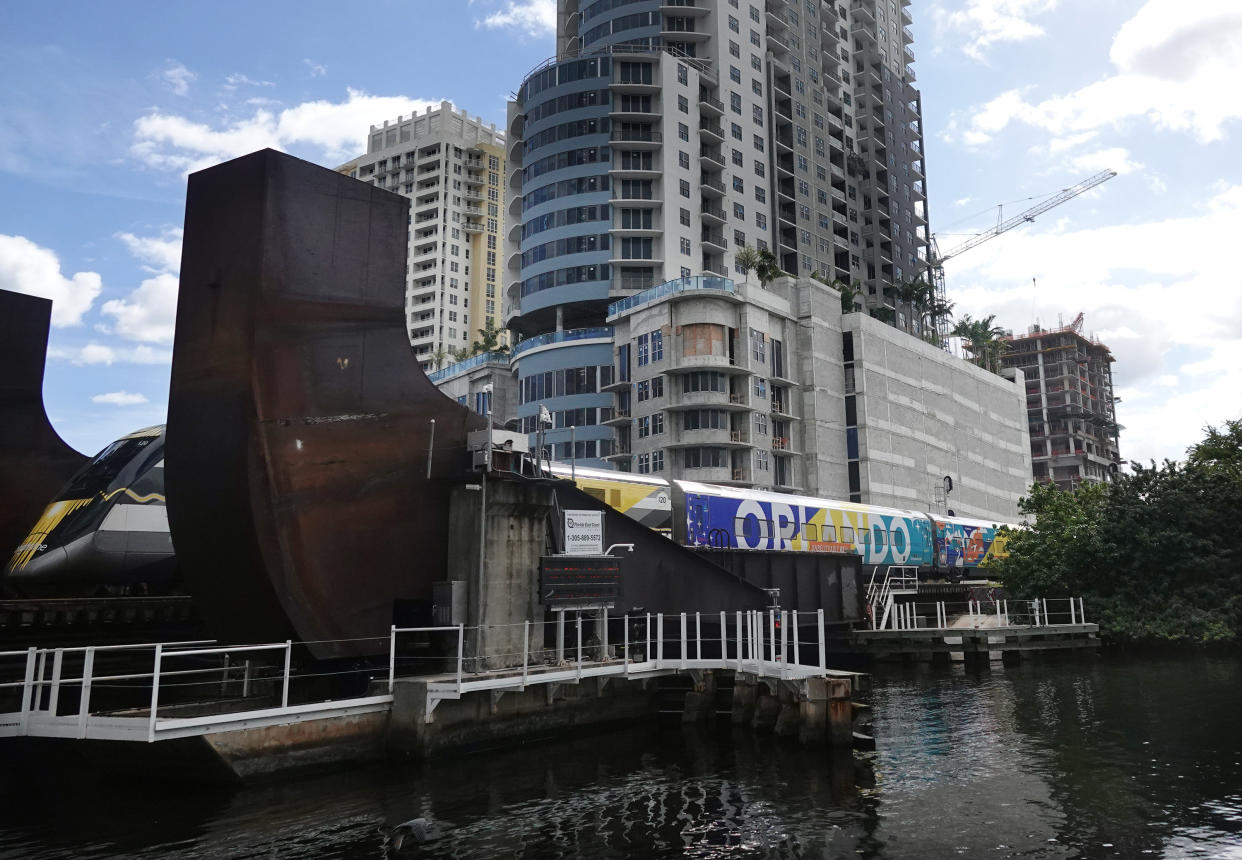Fort Lauderdale is willing to back a new train bridge. Mayor doesn’t want it to be ‘the epitaph for downtown.’

Fort Lauderdale agreed Tuesday night to accept a train bridge over the New River if a tunnel is too costly, the latest development in a long-running debate over paving the way for commuter rail.
If a bridge carrying high-speed commuter trains ever slices through Fort Lauderdale, it will forever change downtown, delivering a cut so deep the city will never recover, a former county official warned Tuesday before the 3-2 vote.
“A bridge would be a scar on this community, a gash that will never heal,” former assistant county administrator Alan Cohen told Fort Lauderdale officials during a debate on whether the city should keep fighting for a tunnel or throw in the towel and let the county build a bridge over the New River.
Mayor Dean Trantalis and Commissioner Steve Glassman had already made it clear they prefer a tunnel. Vice Mayor Pamela Beasley-Pittman and Commissioners John Herbst and Warren Sturman had already said they’re willing to move forward with a bridge.
The commission took an official vote on the matter Tuesday night. Sturman, Herbst and Beasley-Pittman voted to accept a bridge if a tunnel is not feasible. The mayor and Glassman dissented.
“This resolution should not pass,” Glassman said before casting his vote. “This resolution is waving the white flag. This is a very bad resolution for our city. This is not listening to all of the residents and testimony we heard today. This is not a good move.”
Said Trantalis: “I just hope you three did not just write the epitaph for downtown.”
County commissioners have the final say, but are more likely to secure federal funding for the bridge project if Fort Lauderdale is onboard with the plan.
According to state transportation officials, a 3.25-mile tunnel from Southwest 15th Street to Sunrise Boulevard would cost $3 billion — six times the cost of a $500 million bridge.
Fort Lauderdale’s mayor says he thinks it can be done cheaper.
BDO USA, a consultant hired by the city to look into the costs of a tunnel, shared preliminary findings Tuesday with the Fort Lauderdale commission.
A shorter 1.1-mile tunnel can be built for an estimated $1 billion, they say. The tunnel would take five years to build. If construction begins in 2028, it would open by 2033.
Cohen, who retired from the county last year and said he was speaking as a private citizen, urged city officials to share those new details with the county.
“A decision this important needs thoughtful consideration,” Cohen said. “This is something the county needs to hear. The type of bridge we’re talking about will divide this community. Please consider slowing this down, getting the rest of the new information and talking with your county colleagues. From my experience, your peers at the county will listen. I really hope you and the county give it a shot.”
Cohen was the last of 20 public speakers. Not one preferred a bridge.
Trantalis mentioned the high cost of eminent domain that would have to be paid if the county opted to build a bridge.
“A lot of developers are sitting in this room today and they are very concerned that their properties might be taken by the government,” the mayor said.
Patrick Scott, president of the Fort Lauderdale Historical Society, warned that the bridge pilings won’t be nearly as pretty as they look in the artists’ renderings.
“They will create barriers that transcend the physical barriers,” he said. “You will end up with the equivalent of a wall.”
Developer Alan Hooper, chair of Fort Lauderdale’s Downtown Development Authority, argued a bridge would destroy a fast-growing residential downtown.
The district chief of staff for Congresswoman Sheila Cherfilus-McCormick read a statement issued earlier in the day urging Fort Lauderdale to continue to explore the viability of a tunnel.
“While building a bridge will be an easy, quick fix, it will burden communities for decades to come,” Cherfilus-McCormick wrote. “A bridge will not only divide the community physically, but it will also exacerbate systemic inequities.”
Stephanie Toothaker, a prominent land-use attorney, told commissioners she represents developers on both sides of the tracks.
“None of these property owners have ever been contacted by the county, by FDOT, by the people studying the bridge option,” Toothaker said. “Each bridge option affects approved projects and projects in process or that have already been approved.”
Seizing those properties would likely cost billions of dollars, she said.
Developer Asi Cymbal told the commission he’s investing more than $1.5 billion in a project downtown that fronts the river and would be severely impacted if the county builds a bridge.
“A bridge will be a disaster and will literally divide downtown Fort Lauderdale,” Cymbal told commissioners. “A bridge will face serious legal challenges by us and other property owners. A bridge will take longer to build and it will cost much more to build in the end.”
The mayor said he wondered if the county was watching.
Cohen said he knew they were.
Susannah Bryan can be reached at sbryan@sunsentinel.com. Follow me on X @Susannah_Bryan

